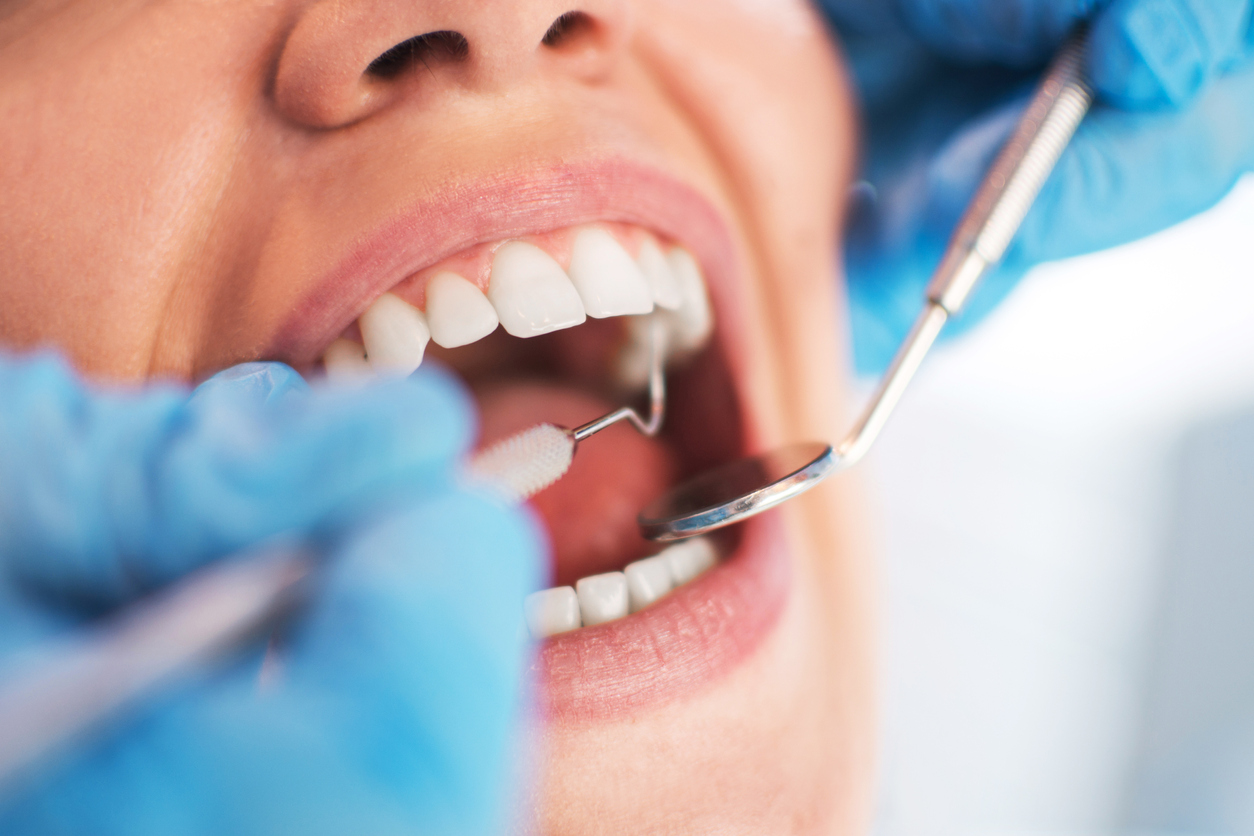You know that fresh, super-smooth feeling after a dental cleaning? It feels like your teeth just got a reset. But what happens next isn’t always obvious. The first 48 hours after a professional cleaning are more important than you might think. This is when your teeth and gums are at their cleanest, but also at their most exposed. Plaque is gone, but that also means your enamel and gums are more open to whatever comes next, be it coffee, snacks, or bad habits.
The way you treat your mouth in those two days can either help extend that clean feeling or send you back to square one faster than you’d like. It’s not about avoiding food or babying your teeth; it’s about knowing how your mouth reacts after a deep clean and making small choices that keep your smile in top shape.
How Does a Dental Cleaning Affect Your Teeth and Gums in The First 48 Hours?
Professional cleanings are far more than just polishing. Hygienists meticulously remove plaque, tartar, and surface stains that daily brushing simply can’t handle. But that process, especially when it involves scaling below the gumline, has a direct impact on both your teeth and soft tissue. The effects can linger over the next couple of days.
What’s happening in the first 48 hours:
- Micro-abrasions in the enamel surface
Polishing and scaling remove buildup but can leave your enamel temporarily more porous, especially if you’re prone to demineralization. - Gum recalibration
When tartar is removed from below the gumline, your gums can begin to reattach more tightly to the teeth. That slight shift can lead to tenderness or swelling. - Inflammation reduction
Cleanings help reduce bacterial inflammation but the healing process can leave some redness or sensitivity for a short time as tissues adjust. - Heightened tooth exposure
If you’ve had heavy tartar buildup, your teeth may have been “insulated” by debris. Once removed, previously hidden surfaces are now exposed to food, drinks, and air. - Fluoride protection begins
Many cleanings end with a fluoride treatment. This layer begins to re-mineralize the enamel within the first few hours and continues working up to 24 to 48 hours post-application.
In short, your mouth is resetting itself. It’s shifting from a bacterial-heavy state to a healthier, cleaner baseline, and that transition can create sensations and reactions that are completely normal.
What Sensations are Normal in Your Mouth After a Professional Dental Cleaning?
Not all post-cleaning experiences are the same. Some people leave the dentist with zero side effects, while others notice tenderness, tightness, or even tingling in the hours that follow. Fortunately, most of these sensations are short-lived and completely normal.
Sensations you might feel—and why:
- Slight soreness or tenderness
Especially common if you haven’t had a cleaning in a while, or if deep cleaning (scaling and root planing) was involved. The gums may feel a bit irritated where tartar was removed. - Sensitivity to temperature
With tartar and plaque gone, your enamel and exposed dentin may react more strongly to hot or cold foods. This typically resolves within 24–48 hours. - Tightness around the gums
As inflammation subsides and the gums begin to heal, you may notice a tighter or “fresher” feeling when you smile or brush. - Smoothness on the teeth
A clean tooth surface feels slick to the tongue. It’s a sign of well-removed buildup and effective polishing. - Tingling or fresh breath awareness
You might be more aware of the minty freshness or of your own breath—simply because the biofilm that dulls that feeling has been removed. - Slight bleeding when brushing or flossing
Especially if gingivitis was present, minor bleeding may still occur for a day or two until the gums adjust to being cleaned.
These reactions aren’t warning signs, they’re proof that your cleaning worked. Think of them as your mouth waking up and recalibrating itself after a thorough reset.
Why Do Some People Experience Sensitivity After a Dental Cleaning?
Post-cleaning sensitivity doesn’t happen to everyone, but it’s common enough that dental professionals typically give a heads-up before you leave the chair. For many, the feeling is mild and fleeting, but for others, it can feel like a sudden increase in discomfort, especially when sipping hot coffee or enjoying cold drinks.
Causes of post-cleaning sensitivity:
- Exposed dentin
When enamel wears down or gums recede (a condition often linked with periodontitis), the dentin underneath is more vulnerable to sensation. - Aggressive tartar removal
When tartar has been left for a long time, removing it can expose parts of the tooth that haven’t been stimulated in a while—triggering heightened responses to temperature and pressure. - Pre-existing enamel erosion
If your teeth are already suffering from acid wear (due to diet or medical conditions like acid reflux), they’re more prone to post-cleaning sensitivity. - Micro trauma to soft tissue
Even the gentlest hygienist may trigger temporary irritation to gum tissue, especially in areas that needed more intensive scaling. - Open tubules post-polishing
Polishing removes surface stains, but can temporarily open tiny dentin tubules that communicate with nerves—leading to short-lived zings or zaps.
Thankfully, these sensations tend to resolve within 24–72 hours. Using sensitive-teeth toothpaste, avoiding very hot/cold foods, and rinsing with lukewarm water can help ease the discomfort.
Can Eating or Drinking Impact Your Mouth Right After a Dental Cleaning?
Yes. What you eat or drink right after a cleaning can either support or hinder your post-cleaning recovery. While you don’t need to fast for 48 hours, you should be mindful of what you consume, especially during the first few hours after fluoride application or deep cleaning.
Best post-cleaning practices for food and drink:
- Wait at least 30 minutes after fluoride treatment
Most fluoride applications are designed to bond with the enamel for maximum effect. Drinking or eating too soon can wash it away before it fully sets. - Avoid acidic foods for the first 24 hours
Citrus fruits, vinegar-based dressings, soda, and wine can irritate exposed dentin and interfere with remineralization. - Go easy on staining foods
Coffee, berries, red wine, and soy sauce can stain teeth more easily when the enamel is freshly cleaned and porous. Try to limit them on the first day. - Opt for soft, lukewarm meals
Foods like yogurt, smoothies, soft-cooked veggies, and mild soups are gentle on your mouth and help you ease back into normal eating. - Stay hydrated with water
Water not only keeps you comfortable but also helps flush out lingering bacteria and neutralize acidity in the mouth. - Avoid sticky or crunchy snacks
Caramel, popcorn, or hard candy can disturb sensitive areas or lodge between newly cleaned teeth.
Choosing supportive foods during this time helps your enamel re-strengthen, your gums heal more efficiently, and your sensitivity subside faster.
Give Your Mouth a Moment to Reset
Professional dental cleanings may feel routine, but their aftereffects are anything but passive. In the 48 hours following your appointment, your mouth is actively resetting: healing inflamed gums, mineralizing enamel, and getting reacquainted with its cleanest, freshest version.
Paying attention to how your mouth feels and treating it kindly during this transition can extend the benefits of your cleaning and reduce discomfort. With the right care and a bit of mindfulness, you’ll go from the “just cleaned” glow to long-term oral health with ease.
At River District Dentistry Smiles, we believe a professional cleaning should leave you smiling for days—not just hours. Our expert hygienists ensure gentle care and thorough aftercare guidance so you can enjoy a healthier mouth long after your appointment.
Ready for your next cleaning? Schedule with us today and feel the difference, from day one to day two and beyond.


